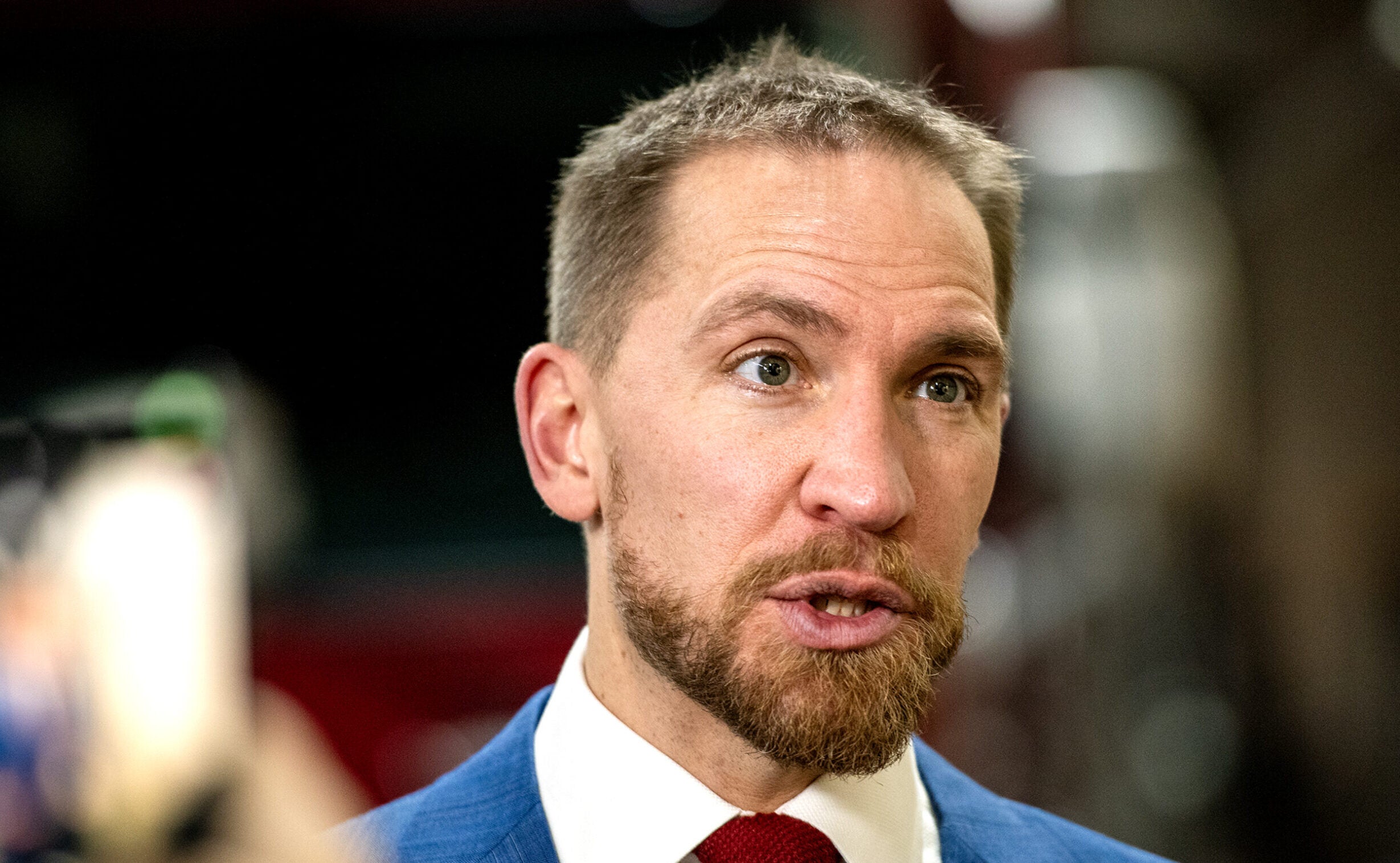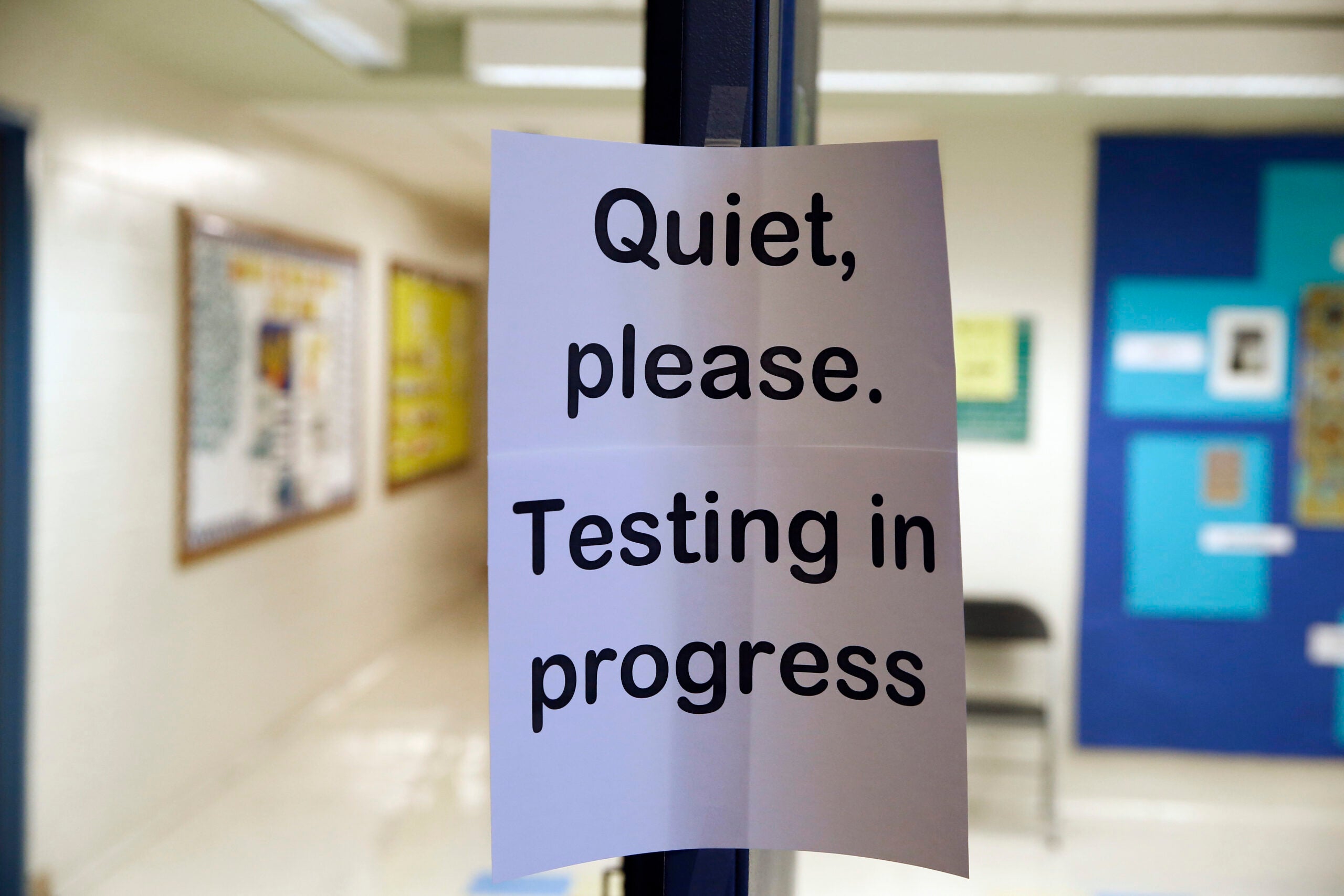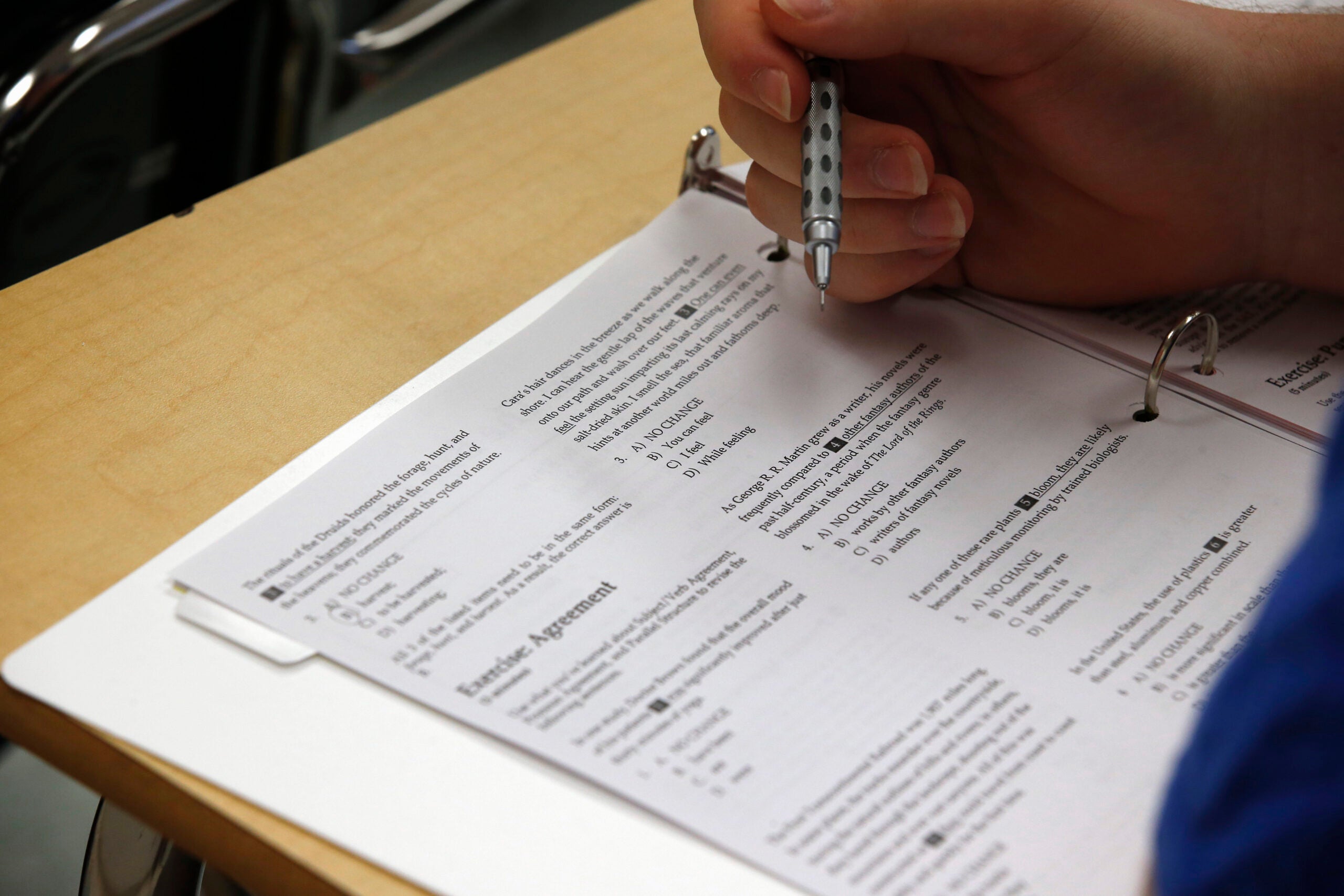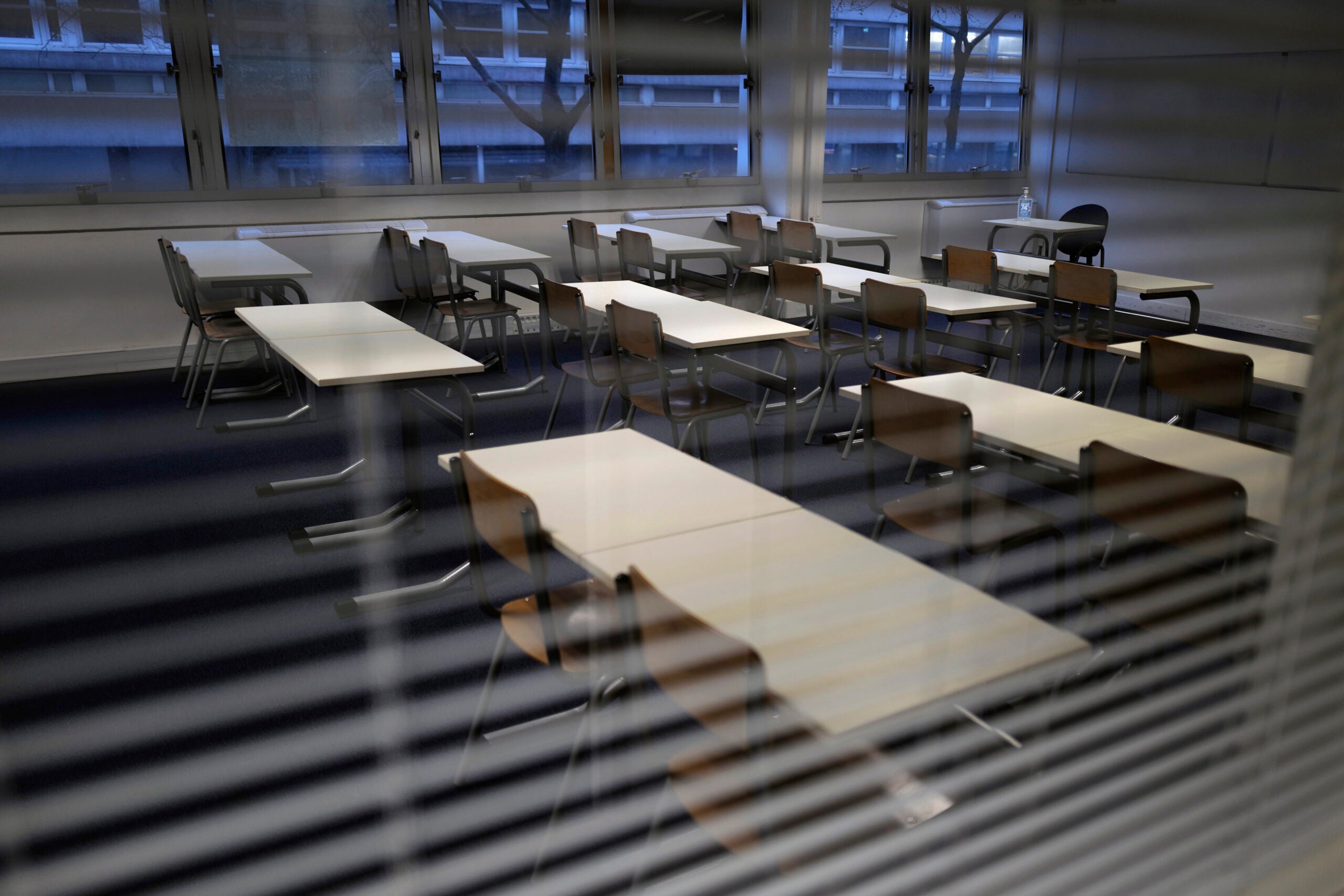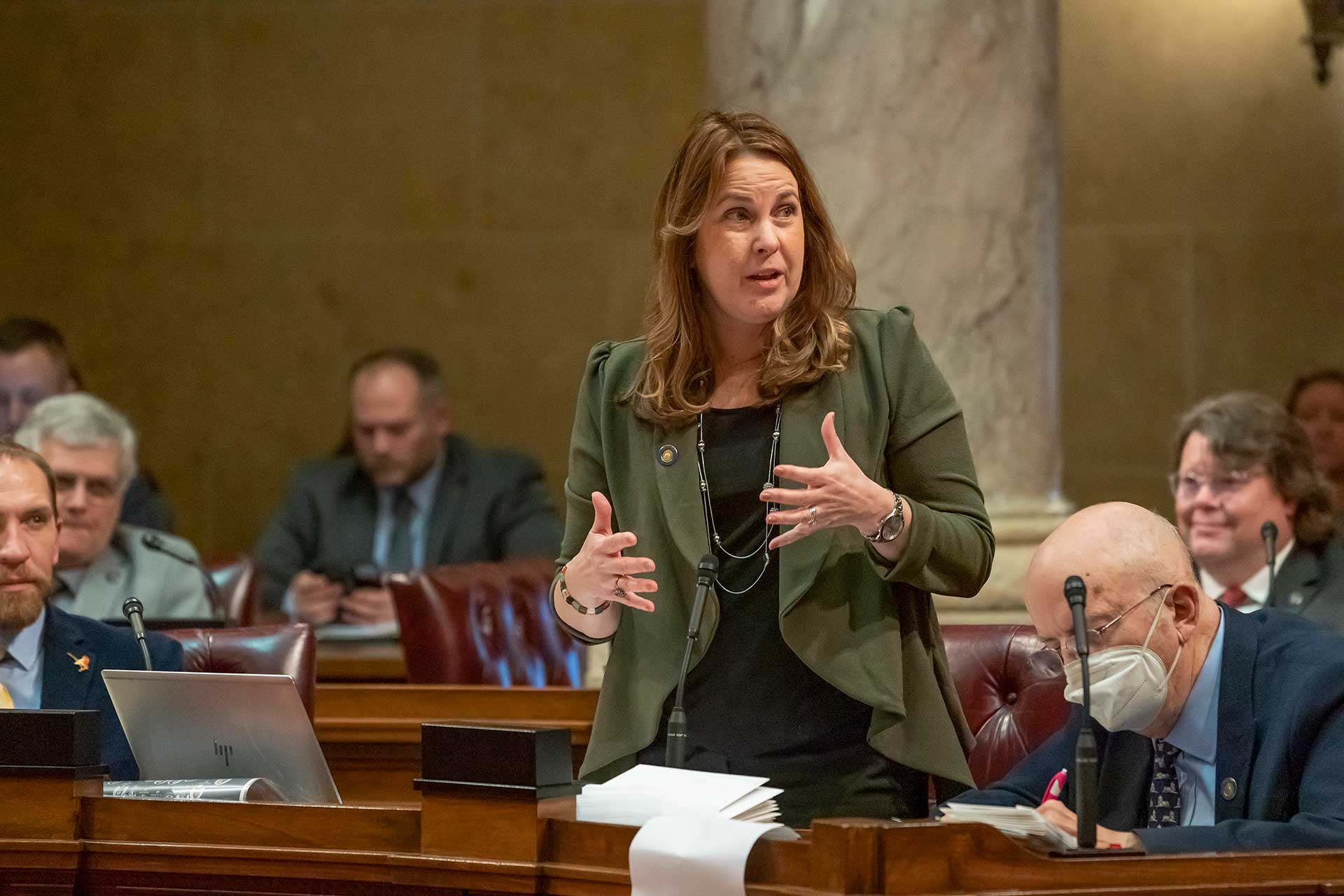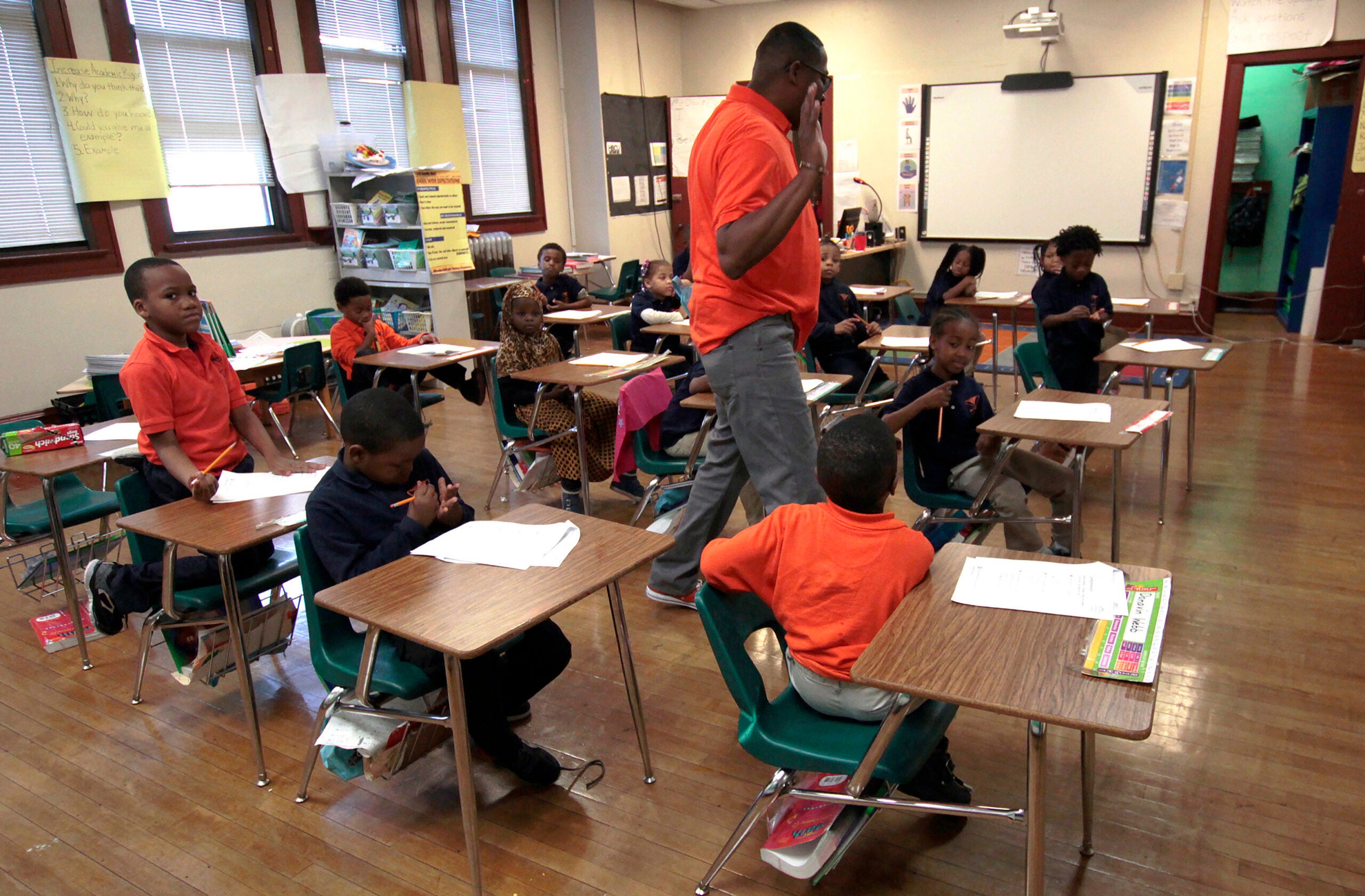The National Center for Education Statistics this week released the results of the National Assessment of Educational Progress — also known as the Nation’s Report Card.
On national reading and math exams, the scores of Wisconsin fourth and eighth graders remain mostly unchanged since 2022. And the state scored in the upper half of the nation in both subjects.
But according to the data, Wisconsin continues to have the largest test score gap between Black and white students than any other state. Milwaukee Public Schools has among the lowest scores for reading in math out of the 26 urban districts surveyed.
Stay informed on the latest news
Sign up for WPR’s email newsletter.
“The first thing is, there’s no test results that can come back from (the National Assessment of Educational Progress) where we get to give up on our kids,” state Sen. Chris Larson, D-Milwaukee, told WPR’s “Wisconsin Today.”
Larson, who represents a district in southeast Milwaukee County and serves on the state Senate Committee on Education, also noted the negative effect that poverty has on educational outcomes.
He talked with host Kate Archer Kent about what the Legislature can do to help bring scores up in Milwaukee and around the state.
“Wisconsin Today” reached out to two members of the state Assembly Committee on Education for an interview, but did not hear back in time for publication.
The following interview has been edited for length and clarity.
Kate Archer Kent: Wisconsin continues to have the widest test score gap between Black and white students in the country. What is the Legislature doing to close this racial disparity gap?
Chris Larson: There has been a continued disinvestment in Milwaukee. We unfortunately have one of the most segregated communities in the country. Therefore, if you are underfunding our large urban area — which in the state of Wisconsin is primarily Milwaukee — that’s where you are going to be hurting everybody within that school district, and you’re definitely hurting students of color.
I don’t think that’s acceptable. If we would have adjusted for inflation to where we were funding on a per pupil basis 15 years ago, our pupils would be valued $3,000 more than they are right now. Combined with a focused attack from Republicans on Milwaukee, that adds up.
KAK: Superintendent Jill Underly said in a statement that the Legislature has let public school funding fall behind. She also connected these test results to under-resourced schools, and is asking for $4 billion in new spending in our two-year budget proposal. What level of state aid do you support?
CL: We have tried to wag our fingers at schools and say, “Do more with less,” and throw more hurdles at them, requiring them to have new requirements without funding those. There’s $50 million sitting in the state coffers that were assigned to deal with literacy. Specifically, schools have had to do it, but the money has not been forwarded to them to actually tackle those problems.
So the numbers, while it’s stunning — $4 billion to be able to meet the investment for our public schools — that’s also the amount of money that we have in our state surplus. So this is the time to do it. There is no cheap way out of this.
Think of your favorite teacher. Was their motivation the paycheck? For most of them, it’s the mission. It’s the service to the kids and making a difference. We should not exploit that by paying teachers a starting wage of $34,000 which is less than a legislator gets. I introduced a bill to make sure every teacher in the state is making at least as much as a legislator.
KAK: Would you put the bulk of the state’s budget surplus into education?
CL: Yes. I mean, there’s a lot of things that we can and should be investing in, but there’s nothing in my mind that’s more important than making sure that our kids are caught up.
KAK: You mentioned the $50 million to advance new literacy teaching programs yet to be released by the legislature’s budget committee. What are the next steps there in the session?
CL: The governor mentioned it in his State of the State. I imagine he’s going to continue to try and put pressure on the Republicans in Joint Finance to release those dollars. I’m not sure what they are waiting for, but the budget was signed off on. That money should have been released to go into schools.
Mind you, it wasn’t enough to be able to fund the literacy programs as they were outlined in the law, but the money was specifically added to get Superintendent Underly on board and to be able to get a lot of Democrats, including the governor on board to say, you have to actually fund this. So to have this Lucy and Charlie Brown situation where they decide to pull the money back after the bill was passed. It’s unethical, and the person who’s swinging and missing is our kids.
KAK: State Superintendent Jill Underly is calling for special education costs to eventually be reimbursed at 90 percent. You told WPR last fall that you support that rate. Would an increase in special education funding lead to improved test scores help close the achievement gap between Black and white students?
CL: Yes, undoubtedly. There’s a recognition by the state that students who have an IEP or Individualized Education Program — some type of a disability or something that’s holding them back just a little bit — they need a special education. They need direct attention from educators and professionals.
So the state, in the past, has said that we are going to fund that so that you are held harmless. This is important because public schools have a higher percentage of students with disabilities than private schools — even those that take private vouchers.
Now, private voucher schools get 90 percent of those costs reimbursed. Public schools get 34 percent, and it’s not even a guarantee. They have to fight every other school district in the state for it. So the real number is actually going to end up probably being less than 30 percent. Schools should not be penalized for trying to bring every student up to proficiency and making sure that no one is left behind.
